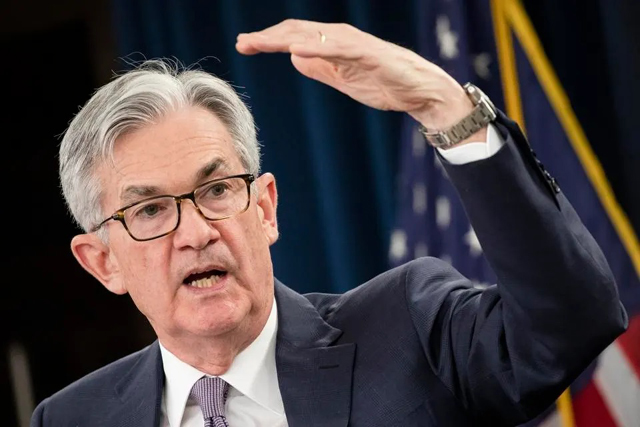
WASHINGTON, Dec 13, 2023 (BSS/AFP) - The US Federal Reserve will likely hold its key lending rate at a 22-year high on Wednesday -- the first of a series of crucial central bank decisions this week.
With a pause deemed extremely likely, attention is on the language of the Fed's decision, along with its accompanying economic forecasts, and the post-meeting press conference by Fed Chair Jerome Powell.
The Fed, which has a dual mandate to lower inflation to its long-term target of two percent while also tackling unemployment, has continued to keep the threat of another rate hike alive.
"It would be premature to conclude with confidence that we have achieved a sufficiently restrictive stance, or to speculate on when policy might ease," Powell said recently.
His comments appear to put the Fed at odds with other central banks such as the European Central Bank (ECB), where policymakers have indicated that they are likely done hiking interest rates.
- Uncertainty over cuts -
Despite the Fed's aggressive policy of monetary tightening, the world's biggest economy grew at an annualized rate of 5.2 percent in the third quarter.
Headline consumer inflation in the United States fell further last month, according to fresh data published Tuesday, while the unemployment rate has remained close to historic lows.
The data suggest the Fed is on track for a so-called "soft landing," a rare feat in monetary policy when high interest rates bring down inflation without plunging the country into a damaging recession.
But the US economy is not there yet, and so interest rates are likely to remain high for the next few months.
What happens after that is less clear.
The Fed will publish updated economic forecasts on Wednesday, which will shed light on whether or not policymakers still expect half a percentage point of rate cuts in 2024, as they did in September.
The financial markets are pricing in around 1.25 percentage points of rate cuts next year, starting in March, according to EY Chief Economist Gregory Daco.
He predicts the Fed will cut interest rates by only one percentage point in 2024, beginning in May.
KPMG Chief Economist Diane Swonk also thought the Fed would begin cutting rates in May, but added in a note Tuesday that it will "likely want to keep the door open a crack" to additional rate hikes.
Some economists see cuts starting earlier in the year, and others expect less cuts, beginning much later in the year.
"We retain our baseline that the Fed will remain on hold until December 2024 before implementing every-other-meeting cuts," economists at Barclays wrote in a recent investor note.
- Transatlantic monetary policies -
The Fed's decision on Wednesday will kick off a flurry of releases by key central banks on both sides of the Atlantic, with the ECB and the Bank of England due to announce their own rate decision on Thursday.
The ECB is expected to leave interest rates unchanged for its second meeting in a row, while the Bank of England is expect to extend its own pause.
The language in all of this week's decisions will either fuel market speculation of interest rates cuts in early 2024, or reinforce the notion that rates must stay higher for longer to effectively tackle inflation.
Steve Englander, the head of North America macro strategy at Standard Chartered, said he expects the Fed will keep its forecast for two interest rate cuts next year.
"But it will be a close call on three cuts, with Fed Chair Powell likely the swing voter," he added.